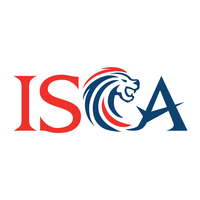ISCA issues three interrelated standards that address quality management, namely:
- Singapore Standard on Quality Management (SSQM) 1, Quality Management for Firms that Perform Audits or Reviews of Financial Statements, or Other Assurance or Related Services Engagements (previously SSQC 1[1])
- SSQM 2, Engagement Quality Reviews
- Singapore Standard on Auditing (SSA) 220 (Revised), Quality Management for an Audit of Financial Statements
The quality management standards bring important changes to the way professional accountancy firms are expected to manage quality—for audits, reviews, and other assurance and related services engagements. They include a new proactive risk-based approach to effective quality management systems within firms that establish the foundation for consistent engagement quality.
The new standards intend to improve engagement quality through:
- Modernizing the standards for an evolving and increasingly complex environment, including addressing the impact of technology, networks, and use of external service providers;
- Increasing firm leadership responsibilities and accountability, and improving firm governance;
- More rigorous monitoring of quality management systems and remediating deficiencies;
- Enhancing the engagement partner’s responsibility for audit engagement leadership and audit quality; and
- Addressing the robustness of engagement quality reviews, including engagement selection, documentation, and performance.
SSQM 1
SSQM 1, which replaces SSQC 1, deals with the firm’s responsibility for quality through having a system of quality management. Under SSQM 1, firms are required to design a system of quality management to manage the quality of engagements performed by the firm. This shift in focus from quality control to quality management is achieved by incorporating a risk-based approach, i.e., managing risks to quality.
SSQM 1 applies to all firms performing engagements under ISCA’s auditing and assurance standards. This includes audits or reviews of financial statements, other assurance engagements, compilations or agreed-upon procedures engagements.
SSQM 1 consists of eight components that operate in an iterative and integrated manner:
(a) The firm’s risk assessment process
(b) Governance and leadership;
(c) Relevant ethical requirements;
(d) Acceptance and continuance of client relationships and specific engagements;
(e) Engagement performance;
(f) Resources;
(g) Information and communication; and
(h) The monitoring and remediation process.
SSQM 2
One of the specified responses in SSQM 1 is a requirement for the firm to establish policies or procedures for engagements requiring an engagement quality review (EQR). The requirements have been enhanced from extant SSQC 1 by increasing the focus on selecting engagements based on quality risks. The application material provides guidance on the types of engagements, or qualities of engagements, that may give rise to quality risks where an EQR is an appropriate response to address that risk. For example, the firm can determine that an EQR is an appropriate response to quality risks associated with engagements where there is a high level of complexity or judgment or where issues have been encountered, or entities with public interest or public accountability characteristics.
SSQM 2 deals with the eligibility of the engagement quality reviewer, and the performance and documentation of the EQR. SSQM 2 is a new standard, although many of its elements were enhanced and relocated from extant SSQC 1 and SSA 220. Key enhancements include a 2-year cooling-off period before an engagement partner can assume the role of engagement quality reviewer, performance of the EQR at appropriate points in time during the engagement and a “stand-back” requirement to determine whether the performance requirements in SSQM 2 have been fulfilled.
SSA 220 (Revised)
SSA 220 (Revised) applies to audits of financial statements and addresses how quality is managed at the audit engagement level by the engagement partner. It makes clear that the engagement partner is responsible for managing and achieving quality at the engagement level, for determining that there are sufficient and appropriate resources assigned or made available on a timely basis and for determining the nature, timing and extent of direction, supervision and review. It also contains a “stand-back” provision that requires the engagement partner to determine they have done enough to take overall responsibility for managing and achieving quality on the audit and whether their involvement has been sufficient and appropriate.
Interrelationship between the Standards
Relationship Between Quality Management at the Firm and the Engagement Level
While a new quality management approach has been introduced in SSQM 1, the nature and spirit of the relationship between SSA 220 (Revised) and SSQM 1 has not changed. The firm is responsible for establishing its system of quality management, which provides the foundation for managing quality at the engagement level, and the engagement partner is responsible for managing and achieving quality at the engagement level.
Although the firm is responsible for establishing its system of quality management, aspects of the system of quality management may be implemented at the engagement level, as illustrated in paragraph A50 of SSQM 1. The extent to which aspects of the firm’s system of quality management are implemented at the engagement level will depend on the nature and circumstances of the firm and the engagements it performs.
A New Standard for Engagement Quality Reviews
As a result of the development of a separate standard for engagement quality reviews, the requirements in extant SSA 220 dealing with the responsibilities of the engagement quality control reviewer have been removed, and revised and relocated to SSQM 2. This approach reinforces the function of the engagement quality review as a firm-level activity that is undertaken by an individual who is acting on behalf of the firm, and results in SSA 220 (Revised) dealing with the responsibilities of the engagement team, including the engagement partner, in relation to managing and achieving quality at the engagement level.
Effective Date
|
Standard |
Effective Date |
|
SSQM 1 |
Systems of quality management in compliance with this SSQM are required to be designed and implemented by 15 December 2022.
The evaluation of the system of quality management required by paragraphs 53–54 of this SSQM is required to be performed within one year following 15 December 2022.
|
|
SSQM 2 |
This SSQM is effective for: (a) Audits and reviews of financial statements for periods beginning on or after 15 December 2022; and (b) Other assurance and related services engagements beginning on or after 15 December 2022. |
|
SSA 220 (Revised) |
This SSA is effective for audits of financial statements for periods beginning on or after 15 December 2022.
|
Below are the links to the quality management standards:
Firms may find implementation guidance released by the International Auditing and Assurance Standards Board (IAASB) useful when implementing the quality management standards. Click here to access the IAASB’s website for implementation guides and a webinar series on the new standards.
[1] SSQC 1, Quality Control for Firms that Perform Audits and Reviews of Financial Statements, and Other Assurance and Related Services Engagements

/infocomm/istock-1065240778-c.jpg?sfvrsn=50a9b558_2)
/audit-assurance/istock-1133945516-c.jpg?sfvrsn=d158128a_2)
/courses/istock-1222725146-c1.jpg?sfvrsn=339e8e96_2)
/leadership-personal-development/istock-1049824998-c.jpg?sfvrsn=3865afcc_12)

.jpg?sfvrsn=d4038e84_0)

/courses/istock-1140691163-c.jpg?sfvrsn=24ccc519_2)
/audit-assurance/istock-1169206203-c.jpg?sfvrsn=1d6f9b25_2)

/business-management-global-connection/istock-1167579720-c.jpg?sfvrsn=ff93f9a5_2)

/professionals/istock-845530100-c.jpg?sfvrsn=46efdedd_2)





/legal-secretarial/istock-866706340-c.jpg?sfvrsn=d7f57b8c_2)